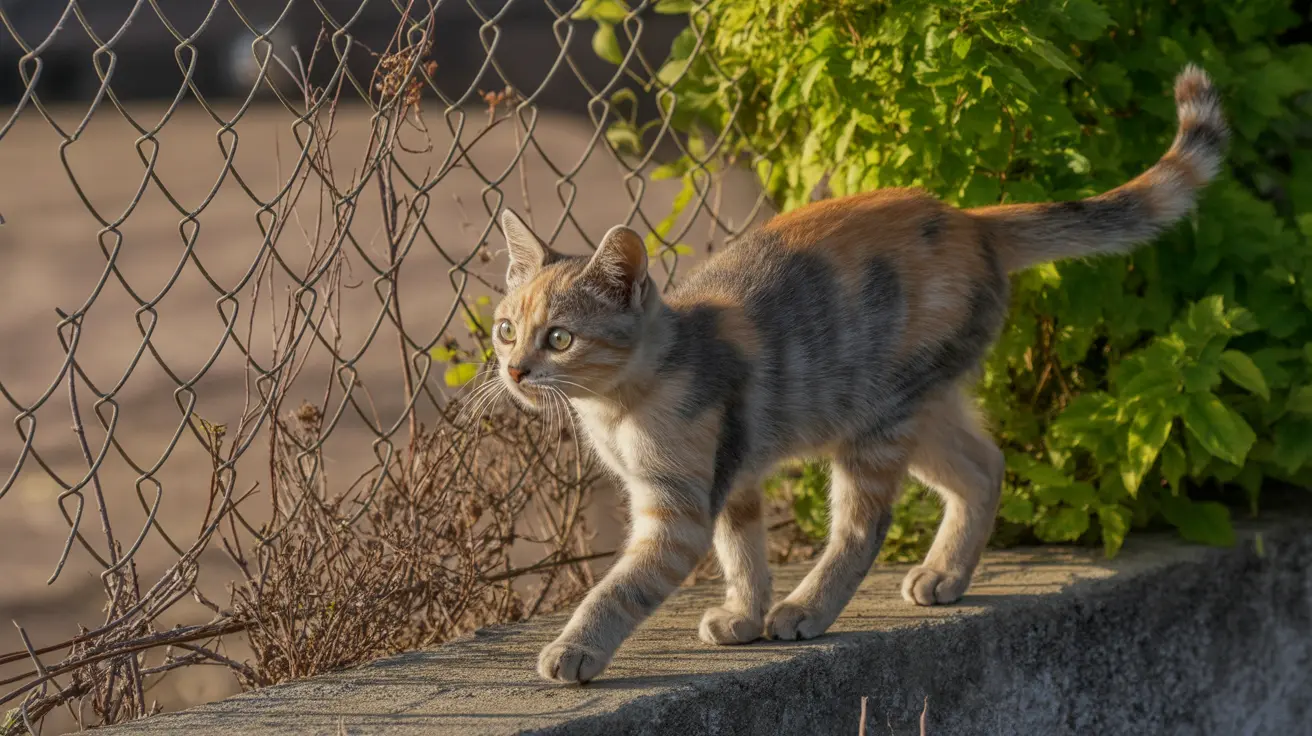Over the past three months, Irvington and surrounding Fremont Unified School District (FUSD) campuses have experienced a significant increase in animal activity that has raised concerns among educators, city officials, and pet owners throughout the region. The surge includes stray cats, rat infestations, and flea populations circulating through school grounds and residential areas, creating widespread health and sanitation challenges that directly impact local pet families.
This district-wide animal challenge has prompted coordinated responses from school staff, city workers, and animal control professionals as they work to address the growing wildlife encounters and protect both students and pets in the community. For pet owners in the area, understanding these developments and taking proactive measures has become essential for maintaining their animals' health and safety.
Newark Wildlife Encounters and Urban Wildlife New Jersey Trends
The recent animal activity in Irvington reflects broader urban wildlife trends across New Jersey, where expanding development and changing environmental conditions have led to increased interactions between wild animals and residential communities. These encounters require careful management to ensure public safety while addressing the underlying factors contributing to wildlife displacement.
Urban environments often provide attractive resources for various animal species, from food sources in garbage receptacles to shelter opportunities in abandoned structures or overgrown areas. When these conditions align, communities may experience concentrated animal activity that affects schools, residential neighborhoods, and public spaces.
Flea Prevention Pets NJ and Disease Protection Strategies
The presence of stray animals and rodent populations creates elevated risks for flea infestations and disease transmission that can directly affect household pets. Pet owners in affected areas should implement comprehensive flea prevention protocols, including regular veterinary-approved flea treatments and thorough home environment management.
Regular grooming and inspection of pets becomes particularly important during periods of increased stray animal activity. Pet owners should examine their animals for signs of fleas, unusual scratching behavior, or skin irritation that might indicate exposure to parasites commonly carried by stray cats and rodents.
Essential Protection Measures
Maintaining clean living spaces, securing pet food storage, and eliminating standing water sources help reduce environmental factors that attract both stray animals and the pests they may carry. Pet owners should also ensure their animals have minimal unsupervised outdoor time in areas where stray animal activity has been reported.
Black Bear Sightings Irvington and Wildlife Safety Protocols
While the primary focus has been on smaller urban animals, the broader pattern of wildlife encounters in New Jersey includes occasional black bear sightings that require specific safety responses. Pet owners should understand proper protocols for protecting their animals during any wildlife encounters, regardless of species.
Creating secure outdoor spaces for pets, properly storing garbage and pet food, and maintaining awareness of local wildlife reports help minimize risks associated with various animal encounters. These practices protect both pets and the wildlife species that may be seeking food or shelter in residential areas.
NJ Stray Animal Control and Community Response
Local animal control services work closely with school districts and municipal authorities to address stray animal populations through humane and effective management strategies. These efforts often include trap-neuter-return programs for feral cats, rodent control measures, and public education initiatives.
Pet owners can support these community efforts by reporting stray animal sightings, maintaining proper pet identification and licensing, and following local regulations regarding pet containment and waste management. Community cooperation significantly enhances the effectiveness of professional animal control interventions.
Irvington Pet Vaccination Requirements and Licensing
During periods of increased stray animal activity, maintaining current pet vaccinations becomes even more critical for protecting household animals from potential disease exposure. Local licensing requirements typically ensure pets receive essential vaccinations, particularly rabies protection.
Pet owners should verify their animals' vaccination status with their veterinarian and ensure compliance with township licensing requirements through the local health department. Proper documentation provides important protection for both individual pets and community health.
Frequently Asked Questions
- How can I protect my pet from fleas and diseases caused by stray cats and rats around Irvington schools?
Pet owners should maintain regular flea prevention treatments for their pets, keep their living areas clean, avoid contact with stray animals, and report infestations or sightings of stray animals to local animal control for timely intervention.
- What should I do if I spot a black bear near Irvington or FUSD campuses?
Avoid approaching or feeding the bear, secure all garbage and food sources to deter bears, calmly leave the area giving the bear space, and report the sighting immediately to local police or the New Jersey Division of Fish and Wildlife for monitoring and safety measures.
- Are black bear encounters dangerous for residents and pets in Irvington?
While black bears generally avoid humans and attacks are extremely rare, they can show intimidation if threatened. Residents should secure attractants like trash and avoid direct contact to minimize risks to both people and pets.
- What is Irvington doing to manage the increase in stray cats, rats, and associated health concerns?
Irvington's schools and city officials collaborate with health departments for pest control, enhanced sanitation, public education on wildlife avoidance, and animal control services, including trap-neuter-return programs for feral cats and community awareness campaigns.
- How can pet owners comply with Irvington's animal licensing and vaccination requirements?
Pet owners must ensure their cats and dogs are licensed through the township's health department, which confirms up-to-date rabies vaccinations, and comply with leash and sanitary laws, including cleaning up after pets in public areas.
The ongoing animal activity challenges in Irvington highlight the importance of community awareness and proactive pet care during periods of increased wildlife encounters. By staying informed about local developments and maintaining proper pet health protocols, families can protect their animals while supporting broader community efforts to address these district-wide challenges effectively.






